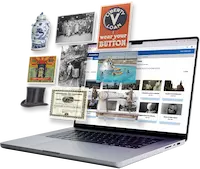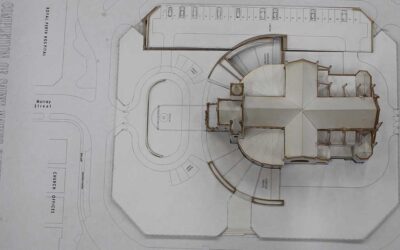Unlocking Collaborative Archival Potential

Margot Note
As custodians of knowledge, archivists play a crucial role in fostering partnerships beyond conventional research.
Archival collaborations emphasize the importance of understanding collections, tailoring resources to meet unique needs, and communicating the value proposition to potential allies.
Understanding Collections
The first step for archivists in building effective partnerships is a profound understanding of their collections. Beyond the surface-level categorization, archivists must delve into the nuances of their holdings. This in-depth knowledge allows archivists to identify potential partners whose needs align with the unique attributes of their collections.
Archivists should recognize that allies within their organizations may have distinctive requirements that differ from traditional researchers. This acknowledgment lays the foundation for tailoring collections to address specific partner needs. Whether it is a niche area of study or a specialized project, archivists can position their collections to cater to the diverse demands of potential allies.
Archivists must highlight their activities, collections, and partnerships to engage potential allies. By showcasing their achievements, archivists demonstrate the value of their work and create a platform for collaboration. Project development gains momentum as archivists involve partners in their success stories, creating a sense of shared accomplishment.
Remaining vigilant for unforeseen collaborative opportunities is equally crucial. Some projects may require time to mature, while others are ripe for implementation. Archivists must stay agile in identifying and capitalizing on opportunities aligning with their program’s goals.
Communicating the Value Proposition
Winning allies involves effective communication of the archival expertise and services value proposition. Archivists should articulate how their resources enhance colleagues’ projects, streamline workflows, and contribute to informed decision-making.
Value propositions play a crucial role in determining the success of products and services, offering a myriad of benefits to users. One key aspect is the creation of savings in terms of time, money, and effort. Information that can streamline processes and workflows enhances productivity and saves time and cost. Additionally, meeting or exceeding users’ expectations and delivering outcomes that align with their needs contribute to the value of a product or service. By addressing user requirements, reducing frustrations, and eliminating obstacles, value propositions aim to enhance user experiences, fostering satisfaction.
Furthermore, value propositions extend beyond functionality and encompass elements that contribute to the quality of user interactions. These elements include improving usability accessibility and providing a range of services. Reducing financial, social, and technical risks is another critical dimension, instilling user confidence. Offering scalability, flexibility, and customization options ensures that products and services can adapt to changing needs, providing long-term value. Support for continuous learning and improvement through resources adds to the value. It fosters a sense of growth and development for users. A well-crafted value proposition addresses user needs, creating a positive and enduring relationship between users and the offered services.
Demonstrating partnership benefits is pivotal. Archivists can achieve this by presenting compelling case studies and success stories. Highlighting positive outcomes resonates with potential allies and showcases the practical applications of archival services.
Showcasing Impact
Archivists can solidify their position as valuable collaborators by showcasing the tangible impact of their contributions. Sharing how archival resources influenced projects, informed strategies, or resolved challenges provides concrete evidence of the value archivists bring. Quantifying the time and effort saved through efficient information retrieval further strengthens this narrative.
Presenting evidence of improved resolutions through context is equally important. Archivists should highlight instances where their expertise led to enhanced decision-making and problem-solving. This evidence-based approach reinforces the credibility of archival services.
Fostering Collaborations
Collaboration thrives on reciprocity. Archivists should not only seek to benefit from partnerships but also contribute to the success of their allies. By sharing skills and expertise, archivists create a mutually beneficial environment. This approach fosters teamwork, ensuring partners feel supported and valued in their collaborative efforts.
Archivists play a pivotal role in building collaborative partnerships that extend beyond the traditional realms of research. Understanding collections, showcasing achievements, practical communication, and fostering collaboration are critical elements in this endeavor. As archivists embrace these strategies, they unlock the full potential of partnerships, contributing to a more prosperous and interconnected landscape of knowledge preservation.

Margot Note
To learn more, please join us for a free webinar, Unlocking Potential through Collaborations, Wednesday, August 14, 2024 at 11 a.m. Pacific, 2 p.m. Eastern. (Can’t make it? Register anyway and we will send you a link to the recording afterwards). Register now.
Never miss another post. Subscribe today!
Similar Posts
Cultivating a Community of Archival Practice: A Client’s Success Story
“We need a dynamic system that supports a consistent approach to managing the Perth diocesan collections across Western Australia…ArchivEra is already providing this with Catholic dioceses in Bendigo, Hobart, and Ballarat.”
Honoring Cultural Protocols in Archival Practice
Learn how archives can honor Indigenous cultural protocols, reframe stewardship, and move toward ethical, reciprocal, and community-driven practices.
Centering Sovereignty in Archives: Decolonial Approaches to Indigenous Knowledge
Margot Note explores how centering sovereignty in archives supports Indigenous rights, decolonial practice, justice, and cultural resurgence.
The Ethical Use of Born-Digital Materials in Archives
Born-digital records introduce complex ethical dilemmas involving consent, privacy, preservation, and access. Archivists must rethink ethical frameworks to navigate digital records’ dynamic, fragmented, and often personal nature.





Leave a Comment
Comments are reviewed and must adhere to our comments policy.
0 Comments